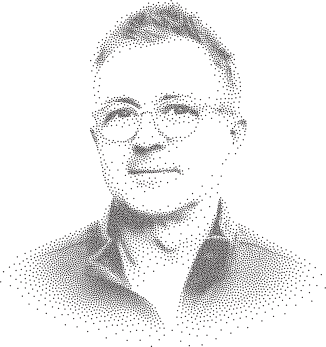Vermouth is not interpreted here as a traditional apothecary drink or bar spirit, but in the historical context of flavored natural wines. The ideal partner for this concept is Michael Andert, a pioneer of biodynamic viticulture in Austria. For WERMUT ZWEIGELT, NATUR 070, the natural winegrower and herbalist only uses herbs from his own cultivation and foraging. Extraction is done in wine or in a brandy made from marc and wine yeast. The drink is sweetened with home-grown stevia and Demeter honey. WERMUT ZWEIGELT, NATUR 070 is not only a radical project, but also a complex taste experience.
Rose | sage | honey | rosemary
Raspberry | rosemary | sour cherry
Citrus | red currant | umami

Red wine Zweigelt | wine yeast marc eau-de-vie | wormwood | clary sage | thyme | rose | fennel | rosemary | stevia | lemon verbena | sweet clover | honey
-

Michael Andert
Winemaker, Herbalist | Pamhagen, AT
Michael Andert is a natural winegrower and herbalist whose family roots are deeply planted in the Pannonian region of Seewinkel. This Burgenland region is located to the east of Lake Neusiedl and is characterized by a unique climate and special topography. The proximity to the lake creates mild temperatures. The landscape is characterized by vineyards and the characteristic steppes of the Seewinkel.
Michael grew up on a small farm as the second eldest of eight siblings and the eldest son. His career as a farmer was both predetermined and his wish, he emphasizes. After completing his training in viticulture and cellar management, including the master winegrower’s examination, he worked for a winery that he converted to biodynamics. Michael gained his first experience with biodynamic agriculture and Demeter in 1999, and this experience had a lasting influence on his view of viticulture. In 2003, he also converted his own winery to biodynamic methods.
Andert’s wine philosophy reflects not only his connection with nature, but also the influences of the unique Seewinkel terroir. He is convinced that the combination of wine and herbs is also ecologically sustainable. Michael says: “I was surprised at the variety of herbs that really make sense in wine. I will never let go of this topic. It suits our farm, because there is wine, vegetables, herbs, you can mix the order now. It’s also rural, it’s a sensible agricultural way of combining products from different gardens.”
For him, biodynamic viticulture is the only way to preserve the soil, because this variant does not require any additional nutrients for the soil. But he also points out that consumers today are also asking what they eat and drink. “If I think about it, I have to ask myself what happens before something ends up in my glass or on my plate. And the big issue is, logically, climate change. With this concept, this way of farming, you can counteract that.”

